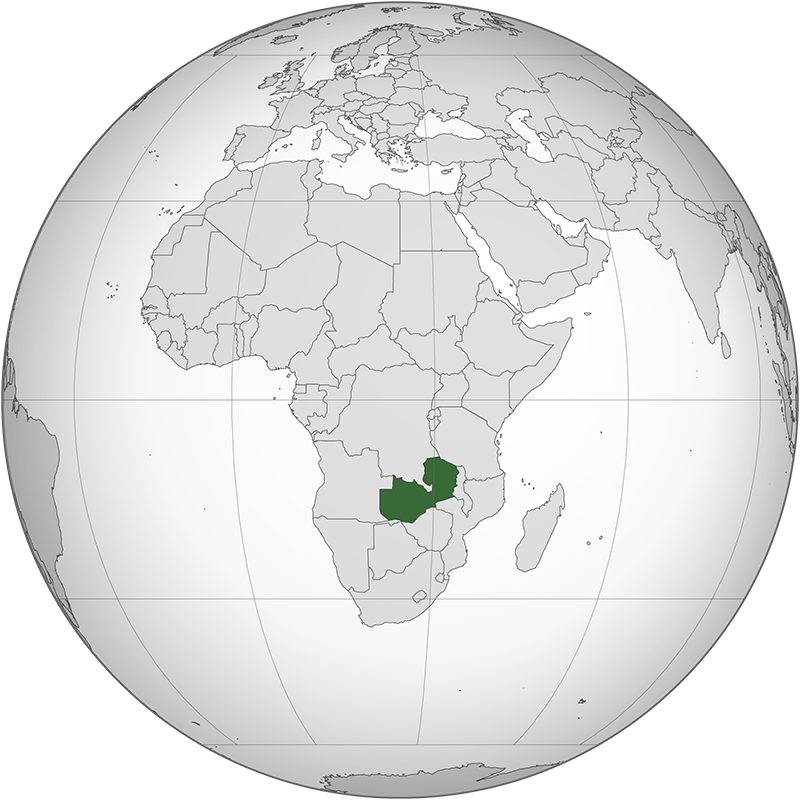
- Population:
- 21,315,000
- Religion:
- Christianity
Zambia was home to indigenous Bantu-speaking groups before becoming a British protectorate known as Northern Rhodesia. It gained independence in 1964 under Kenneth Kaunda. The country has experienced economic ups and downs, largely tied to copper mining. In recent years, Zambia has worked toward economic diversification and development despite facing debt challenges.
Zambia, officially the Republic of Zambia, is a landlocked country in Southern Africa. It is bordered by the Democratic Republic of the Congo to the north, Tanzania to the northeast, Malawi to the east, Mozambique to the southeast, Zimbabwe to the south, Botswana and Namibia to the southwest, and Angola to the west. Covering an area of approximately 752,612 square kilometers, Zambia has a population of about 18 million people as of 2023. The capital and largest city is Lusaka. The official language is English, with numerous indigenous languages also widely spoken. Zambia operates as a presidential republic. The economy is primarily based on mining, particularly copper, along with agriculture and tourism. Zambia is known for its rich wildlife and natural attractions, including Victoria Falls, one of the largest and most famous waterfalls in the world. The country is a member of international organizations such as the United Nations, the African Union, and the Southern African Development Community.






